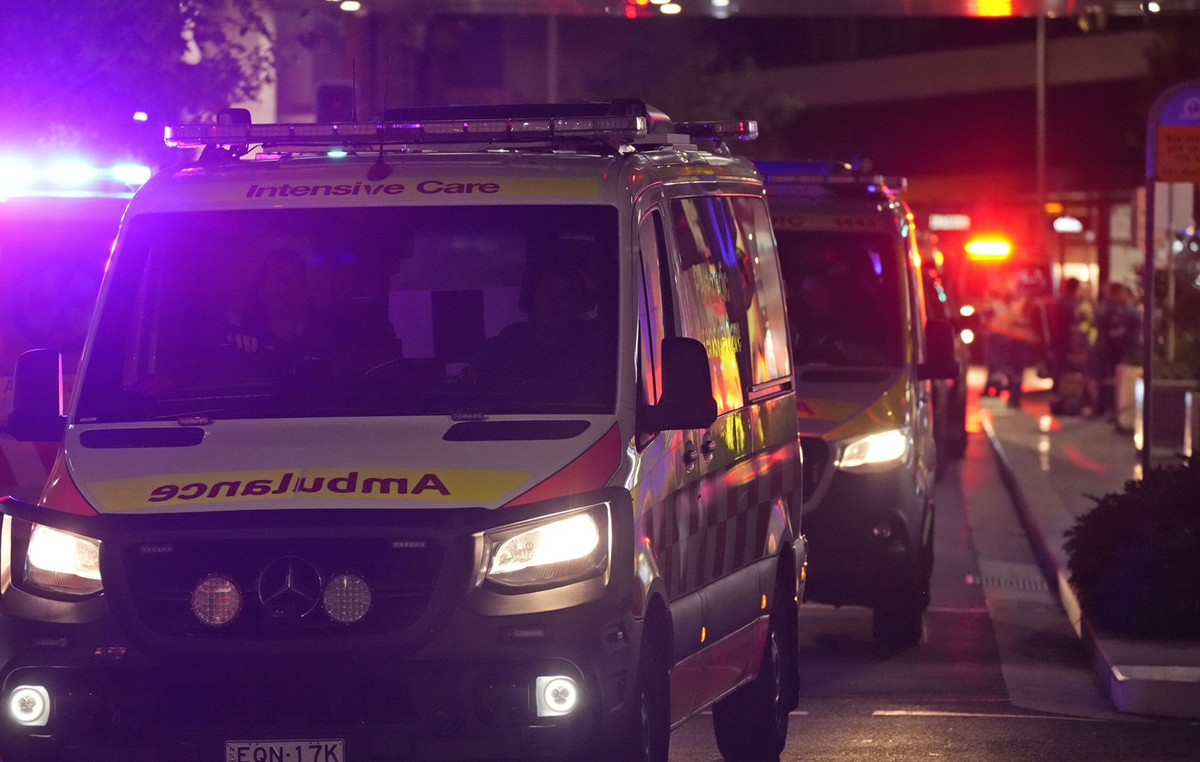Ukraine has denied any involvement in the sabotage of the Nord Stream pipelines after a media report cited new information that a “pro-Ukrainian group” may have been behind last year’s attack targeting Russia’s gas supplies to Europe.
The firing of a top Ukrainian official on Tuesday came in response to a New York Times report that cited new information that was reviewed by US officials.
“While I enjoy collecting fun conspiracy theories about the government [ucraniano]I must say: [a Ucrânia] has nothing to do with the Baltic Sea accident and has no information about ‘pro sabotage groups'[-Ucrânia]'” Mykhailo Podolyak, top adviser to Ukrainian President Volodymyr Zelensky, said on Twitter.
The report said new intelligence reviewed by US officials suggested that a group loyal to Ukraine, acting independently of the Kiev government, was involved in the operation.
Mystery surrounded who could be responsible for the blatant sabotage last September that damaged two pipelines transporting Russian gas to the European Union and hit a crucial source of revenue for Moscow.
Both pipelines were closed at the time of the attack, which came months after Russia’s invasion of Ukraine.
A source familiar with US intelligence told the CNN that the assessment was not made with great confidence and is not the prevailing view of the intelligence community, and that the service has yet to identify a culprit for the attack.
There is a section of the US intelligence community that believes pro-Ukrainian actors would have reason to sabotage the pipelines because of how Russia was setting them up against Ukraine and Europe.
The intelligence community has no evidence that Ukrainian leaders, including Zelensky, had any knowledge of or involvement in the pipeline sabotage, the source said.
The incident, in which underwater explosions occurred before pipelines burst in several places, remains a major sticking point between Russia and the West.
Pipelines linking Russia and Germany across the Baltic Sea to funnel gas from Russia to the European Union were controversial long before the Kremlin declared war on Ukraine, mainly because of fears surrounding Europe’s dependence on Russian energy.
Their damage became yet another twist in the energy stalemate that erupted after the invasion, as Europe tried to get rid of Russian fuel.
Several investigations by European authorities are ongoing.
Swedish prosecutors confirmed in November that the explosions at the pipelines were an act of sabotage after investigators found evidence of explosives at the sites, but their preliminary investigation had yet to determine any charges.
Speaking to reporters on Tuesday, the US National Security Council’s coordinator for strategic communications, John Kirby, referred the questions to European investigating officials and said he “will not get ahead of this investigative work.”
“Several of our European partners – in fact, three of them in Germany, Sweden and Denmark – have already opened investigations into what happened to the Nord Stream 2 pipeline, and those investigations are not closed. They are still hard at work on it,” said Kirby.
In the days following the incident, sightings of Russian vessels operating in the area where the leaks occurred raised suspicions about the potential involvement of Russia, which at the time came to the attention of European and American authorities as the only actor in the region believed to have so much the ability and motivation to deliberately damage pipelines.
Russia has publicly denied hitting the pipelines and has blamed the West for the as-yet unexplained explosions. In September, a spokesman called the accusations against Moscow “predictably stupid and absurd”.
During a meeting of G20 foreign ministers in New Delhi earlier this month, Foreign Minister Sergey Lavrov insisted on the need for a “fair and prompt investigation” into the blasts.
NATO says it remains unclear who was behind the leaks
NATO Secretary General Jens Stoltenberg said there was no identified perpetrator of the sabotage of the Nord Stream gas pipelines.
“We were unable to determine who was behind [da sabotagem]”, said Stoltenberg.
“There are ongoing national investigations and I think it is right to wait until they are finalized before we say anything more.”
Kremlin blames Ukraine
The Kremlin said this week that it doubts that attacks on the Nord Stream pipelines in September last year could have been carried out without state support.
“As for the pro-Ukrainian angle, the idea that some villain organized it is hard to believe. It was a very difficult task, which probably only a well-trained state special service was capable of, and there are not many of them in our world,” said Dmitry Peskov, a Kremlin spokesman, when asked about the New York Times report. ”.
“We continue to demand a prompt and transparent investigation, we continue to demand that we be allowed to participate in this investigation,” Peskov told reporters at a regular Kremlin briefing.
“It is necessary to identify who executed him and who ordered him. Committing a terrorist attack against a critical part of the international energy infrastructure is a very dangerous precedent,” she added.
With information from Reuters
Source: CNN Brasil
Bruce Belcher is a seasoned author with over 5 years of experience in world news. He writes for online news websites and provides in-depth analysis on the world stock market. Bruce is known for his insightful perspectives and commitment to keeping the public informed.







